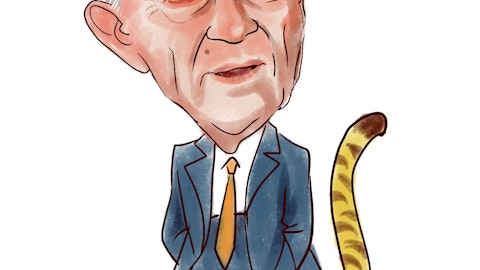Unquestionably, most companies’ officers and directors have more up-to-date insights about their companies’ ongoing challenges, future prospects and other industry-specific issues. It is also widely-known that corporate insiders tend to invest in their companies’ stock for only one reason: they believe the market does not fully appreciate their companies’ growth potential. Of course, insiders are not permitted to trade on material non-public information, but they do have their own perceptions on how overvalued or undervalued their companies’ shares are. It is also worth pointing up that insiders’ purchases tend to consistently outperform the broader market, which is a major reason most investors closely monitor insider trading behavior. The Insider Monkey identified three companies with notable insider buying activity, so this article looks into the insider buys of those companies and their recent performance.
Most investors can’t outperform the stock market by individually picking stocks because stock returns aren’t evenly distributed. A randomly picked stock has only a 35% to 45% chance (depending on the investment horizon) to outperform the market. There are a few exceptions, one of which is when it comes to purchases made by corporate insiders. Academic research has shown that certain insider purchases historically outperformed the market by an average of seven percentage points per year. This effect is more pronounced in small-cap stocks. Another exception is the small-cap stock picks of hedge funds. Our research has shown that the 15 most popular small-cap stocks among hedge funds outperformed the market by nearly a percentage point per month between 1999 and 2012. We have been forward testing the performance of these stock picks since the end of August 2012 and they have returned 102% over the ensuing 38 months, outperforming the S&P 500 Index by more than 53 percentage points (read more details here). The trick is focusing only on the best small-cap stock picks of funds, not their large-cap stock picks which are extensively covered by analysts and followed by almost everybody.
Delta Air Lines Inc. (NYSE:DAL) saw a director make a noteworthy buy on Monday. Francis S. Blake purchased 4,915 shares at a weighted average price of $50.83, lifting his total holding to 18,065 shares. Shares of this airline have advanced nearly 5% since the beginning of the year, but they still trade at a relatively cheap trailing price-to-earnings ratio of 14.62 (the average for the S&P 500 companies stands at 22.65). The forward P/E metric shows even stronger upside; Delta Air Lines Inc. (NYSE:DAL) has a ratio of 8.74, while the average for the S&P 500 benchmark stands at 17.19. The low crude oil price environment has greatly contributed to the company’s strong financial performance this year. The airline’s total fuel expense for the nine months that ended September 30 totaled $5.93 billion, down from $9.08 billion reported for the same period a year ago (as a result of a 44% decrease in the market price per gallon of fuel). Meanwhile, the company’s revenues for the nine-month period of 2015 increased to $31.20 billion from $30.72 billion reported in 2014. The number of hedge funds from our database with stakes in the company declined to 109 from 114 during the September quarter in spite of its relatively cheap valuation. Daniel S. Och’s OZ Management upped its position in Delta Air Lines Inc. (NYSE:DAL) by 7% during the July-September period to 6.95 million shares.
Follow Delta Air Lines Inc. (NYSE:DAL)
Follow Delta Air Lines Inc. (NYSE:DAL)
Receive real-time insider trading and news alerts
Let’s head to the next page of this daily insider trading article, where we reveal the insider buys reported at Ardelyx Inc. (NASDAQ:ARDX) and Exa Corp (NASDAQ:EXA).





